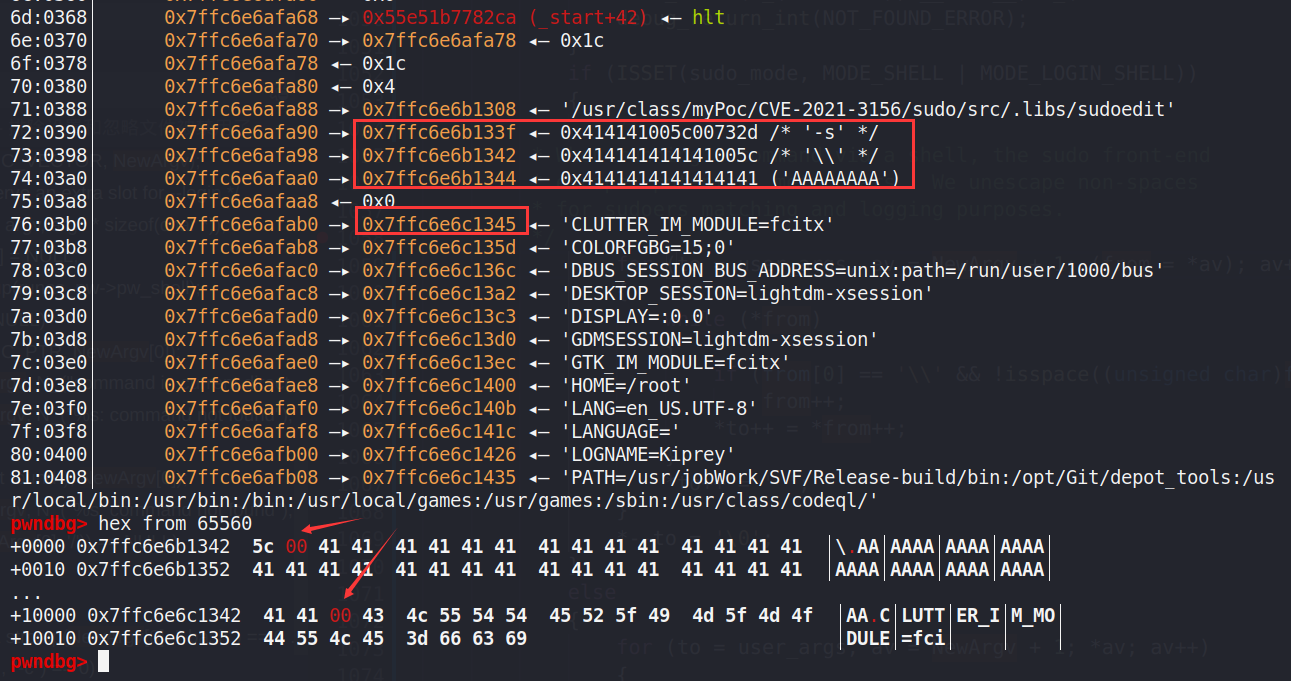

CVE 2021 3156 FULL
Qualys security researchers have been able to independently verify the vulnerability and develop multiple variants of exploit and obtain full root privileges on Ubuntu 20.04 (Sudo 1.8.31), Debian 10 (Sudo 1.8.27), and Fedora 33 (Sudo 1.9.2). Successful exploitation of this vulnerability allows any unprivileged user to gain root privileges on the vulnerable host. It was introduced in July 2011 (commit 8255ed69) and affects all legacy versions from 1.8.2 to 1.8.31p2 and all stable versions from 1.9.0 to 1.9.5p1 in their default configuration. The vulnerability itself has been hiding in plain sight for nearly 10 years. It allows users to run programs with the security privileges of another user.

Sudo is a powerful utility that’s included in most if not all Unix- and Linux-based OSes. Any unprivileged user can gain root privileges on a vulnerable host using a default sudo configuration by exploiting this vulnerability. Figure 3: Change the number of processors to 2 in the Hyper-V VM settings. Original Post: The Qualys Research Team has discovered a heap overflow vulnerability in sudo, a near-ubiquitous utility available on major Unix-like operating systems. Click on Edit settings, and modify the number of processors from six (or however many you may have listed) to two. Qualys has not independently verified the exploit.

Solaris are also vulnerable to CVE-2021-3156, and that others may also
CVE 2021 3156 INSTALL
As a general security best practice, we recommend that Amazon EC2 customers running Amazon Linux update their operating systems to install the latest version of sudo.Update Feb 3, 2021: It has been reported that macOS, AIX, and ĪWS infrastructure and services are not affected by this issue. CVE-2021-3156 Description, Sudo before 1.9.5p2 contains an off-by-one error that can result in a heap-based buffer overflow, which allows privilege escalation. Specifically, this was a heap buffer overflow allowing any user to. In January 2021, Qualys released a blog post detailing a terrifying new vulnerability in the Unix Sudo program. Deploy the machine and ssh into the machine use. The sudo maintainers have published more information about this issue at. A tutorial Walkthrough for exploring CVE-20213156 in the Unix Sudo Program. This issue may permit unprivileged users to run privileged commands. You are viewing a previous version of this security bulletin.ĪWS is aware of the security issue recently disclosed by the open source community affecting the Linux "sudo" utility (CVE-2021-3156). More information is available at the Amazon Linux Security Center. AMI IDs for images with the updated kernels can be found at Amazon Linux 2018.03 AMI IDs, Amazon Linux 2 AMI IDs, and in the AWS Systems Manager Parameter Store.Ĭustomers not using Amazon Linux should contact their operating system vendor for any updates or instructions necessary to mitigate any potential concerns arising from these issues. We have released new versions of the Amazon Linux and Amazon Linux 2 AMIs that automatically include the updated kernel. Customers with existing EC2 instances running Amazon Linux should run the following command within each EC2 instance running Amazon Linux to ensure they receive the updated package: Updated versions of sudo are available in the Amazon Linux and Amazon Linux 2 package repositories. This issue may permit unprivileged users to run privileged commands, or cause affected hosts to crash. AWS is aware of the security issue recently disclosed by the open source community affecting the Linux "sudo" utility (CVE-2021-3156).


 0 kommentar(er)
0 kommentar(er)
